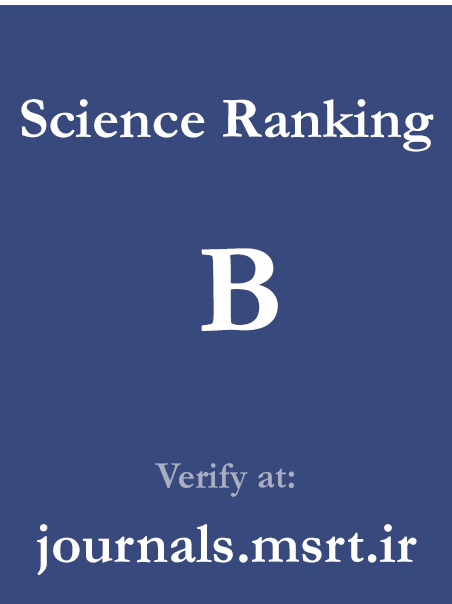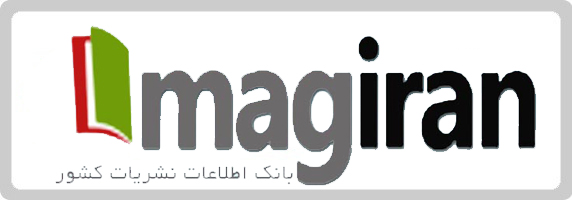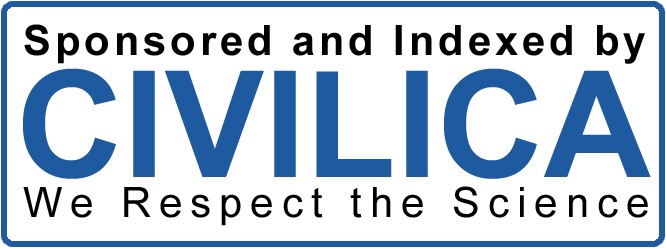Strategic Thinking Model of Primary School Teachers in Online Education
Keywords:
Teachers’ insight, strategic model of online education, grounded theoryAbstract
The purpose of this study was to design a strategic thinking model of primary school teachers in online education. The research method was qualitative, based on strategic approaches, and in terms of purpose, it was an applied study. The statistical population consisted of elites and experts in the fields of curriculum planning and educational management who were familiar with the research topic and had successful experience in strategic management. Sampling was conducted using theoretical, judgmental, and purposive sampling methods. Data collection tools included in-depth semi-structured interviews, the researcher’s observations, and theoretical foundations, which were collected during the period from Winter 2022 to Spring 2023. Data analysis was performed using open, axial, and selective coding, resulting in the development of a strategic thinking model of primary school teachers in online education. In the strategies section, the category of the online education pathway was extracted, and in the concepts section, the program-oriented category along with the indicators of dynamic planning and achieving cognitive domain objectives in online education were identified.
Downloads
References
1. Varas D, Santana M, Nussbaum M, Claro S, Imbarack P. Teachers' strategies and challenges in teaching 21st century skills: Little common understanding. Thinking Skills and Creativity. 2023;48. doi: 10.1016/J.TSC.2023.101289.
2. Ahi F, Toulabi Z, Mohammadi A. The effect of strategic thinking and strategic planning on the performance of the company with the moderating role of strategic foresight (case study: Gas Company of Kermanshah Province). Scientific Journal of New Research Approaches in Management and Accounting. 2022;5(17):10-22.
3. Moharramzadeh M, Nouri MS. The effect of strategic thinking on employee productivity in the sports and youth departments of western Iran: The mediating role of organizational agility. Human Resource Management in Sport. 2020;7(2):225-44. doi: 10.22044/shm.2020.8434.1994.
4. Zahed babolan A, Mosleh Germi M, Amjadi hor J, Soltani E. Identifying Indicators of Education in During the COVID-19. Journal of Research in Educational Systems. 2022;15(55):41-50.
5. Qazi MA, Sharif MA, Akhlaq A. Barriers and facilitators to adoption of e-learning in higher education institutions of Pakistan during COVID-19: perspectives from an emerging economy. Journal of Science and Technology Policy Management. 2024;15(1):31-52. doi: 10.1108/JSTPM-01-2022-0002.
6. Al Barzi M, Mohammadi, Mahdi, Naseri Jahormi, Reza, Safari, Maryam, & Mirghafari, Fatemeh. . Primary school teachers' experiences of the challenges of changing traditional education to virtual education during the outbreak of the Corona virus. Journal of Education and Learning Studies. 2024. doi: 10.22099/jsli.2021.6310.
7. Shariati F, Niazazari K, Jabbary N. Presenting a Model for Virtual Education Considering Educational Equity with a Phenomenological Approach in Schools of Golestan Province. Iranian Journal of Educational Sociology. 2024;7(1):66-78. doi: 10.61838/kman.ijes.7.1.7.
8. Elhamifar A, Mehdinezhad v, Farnam A. The Effect of Critical Thinking on Metacognitive Knowledge and Epistemological Beliefs of High School Students. Iranian Journal of Educational Sociology. 2019;2(3):47-55. doi: 10.29252/ijes.2.3.47.
9. Karimi A, Gholtash A, Machinchi AA. Develop and validate a model for teaching metacognitive skills based on quantum thinking to student-teachers. Sociology of Education. 2023;9(1):359-70. doi: 10.22034/ijes.2022.544223.1207.
10. Karimzadeh N, Darvishi M, Fereidouni M. Explaining the relationship between the use of virtual space and moral education (individual dimension) of female students of the second year of secondary school in Hamadan city. The Journal of Theory and Practice in Teachers Education. 2023;9(15):238-01.
11. Bezi A, Fakoori H, Bayani AA, Saemi H. Design and Validation of an Environmental Education Curriculum Model for Higher Education Based on the "Aker" Approach. Iranian Journal of Educational Sociology. 2024;7(1):79-90. doi: 10.61838/kman.ijes.7.1.8.
12. Azar Poor S, Abooii Ardakan M, Gholipour A. A study on relationship between strategic thinking skills and personality traits of managers in media industry. Iranian journal of management sciences. 2015;10(40):42-60.
13. Yazdanshenas M, Hashempour M, editors. The Impact of Strategic Thinking Components on Employees' Psychological Empowerment: A Case Study of the Qom University of Medical Sciences and Health Services. 4th National and 2nd International Conference on Accounting and Management; 2015.
14. Safari O, Shahidi N, Panahi S. Examining the explanatory model of political behavior with hypocritical behavior based on spirituality and strategic thinking among secondary school teachers. Quarterly Journal of Higher Education. 2023;3(2):127-13.
15. Mohebinejad M, Shabani Bahar G, Alizadeh Abadi S, Yektayar M. Developing a Model of Strategic Thinking Skills, Intellectual Capital, Core Competencies, and Innovation in Iran's Sports Organizations. Studies in Organizational Behavior Management in Sports. 2021;8(3):97-108.
16. Saleh MH, Al-Hakimi MA. Linking strategic intelligence, strategic leadership, strategic planning, and strategic thinking and business performance: The moderating effect of strategic flexibility. Future Business Journal. 2024;10(31). doi: 10.1007/s43621-024-00670-z.
17. Schoemaker P. Scenario Planning: A Tool for Strategic Thinking. Sloan Management Review. 2014.
18. Al Musawi A. Exploring EFL teachers’ perceptions of using virtual reality in education. Educational Technology. 2025. doi: 10.30935/cedtech/15835.
19. Koreňová L, Krpec R, Barot T. Digital Technologies in Primary Mathematics Education: Insights From Future Teachers’ Portfolios. European Conference on E-Learning. 2024;23(1):197-208. doi: 10.34190/ecel.23.1.2929.
20. Li L, Heydarnejad T. May I come in? A probe into the contributions of self-esteem, teacher support, and critical thinking to anxiety and shyness in language classes. BMC psychology. 2024;12(1):7. doi: 10.1186/s40359-023-01501-y.
21. Mousavi F, Vaavis K. Examining Strategies for Motivating Elementary Teachers to Use Innovative Teaching Methods in Virtual Spaces. Quarterly Journal of Educational Excellence and Training. 2023;1(3):66-78.
22. Khalvandi F, Emadi SR, Omrani MA. Designing and Validating a Conceptual Model for Managing E-Learning Environments for Teachers. 2023.
23. Palha, Matic. Predisposition of in-service teachers to use game-based pedagogy. Electronic Journal of e-Learning. 2023;21(4):286-98. doi: 10.34190/ejel.21.4.3135.
24. Siregar Y. Increasing the Competence of Vocational Education Teachers With 4C Skills-Based Training Management (Critical Thinking, Creativity, Communication, Collaboration). 2023. doi: 10.4108/eai.19-9-2023.2340493.
25. Feucht FC, Michaelson MK, Rotshtein R, Bargardi S, Bush R, McBride J. Creating "THINKING PRO" for High School Teachers and Students: Two Cases of a Local News-Driven Curriculum in English and Social Studies Classrooms Institutions and Organizations as Learning Environments for Participation and Democracy: Opportunities, Challenges, Obstacles: Cham: Springer International Publishing; 2023. 111-34 p.
Downloads
Published
Submitted
Revised
Accepted
Issue
Section
License
Copyright (c) 2025 Reyhaneh Bezarafshan Delijan (Author); Seyed Javad Mortazavi Amiri; Mohammad Ghaafari Majaleh (Author)

This work is licensed under a Creative Commons Attribution-NonCommercial 4.0 International License.




